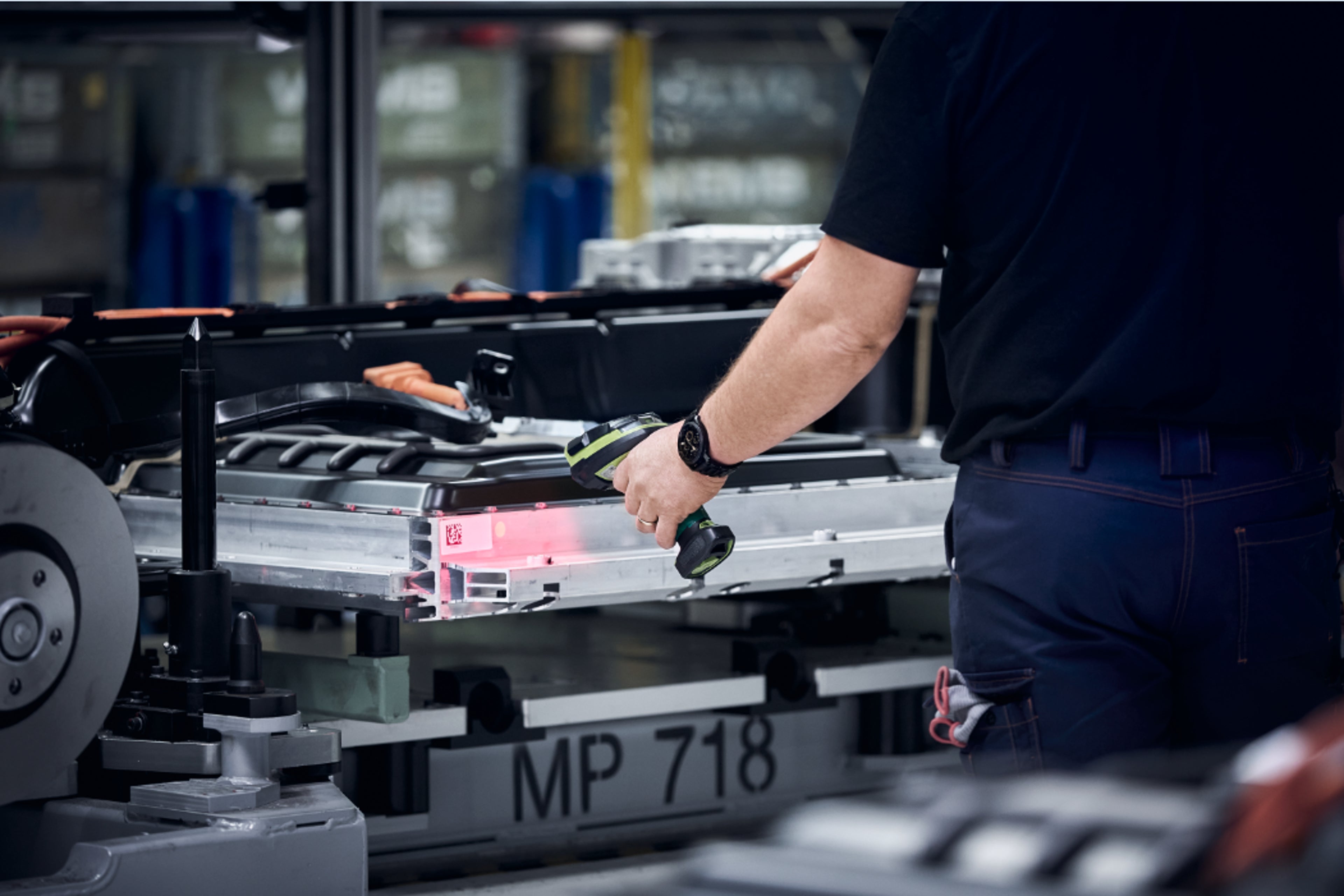How do we maintain responsible business practices?
We have thousands of suppliers delivering our parts and components – here’s how we make sure our high standards extend beyond our walls.

Scanning points and blockchain technology help us secure traceability for battery raw materials.
When the staff in our factories build a new Volvo car, they perform the delicate task of assembling thousands of different parts into a masterpiece on wheels. Each of these parts comes from one of our suppliers, and as our cars are made from increasingly advanced materials and technologies, we manage thousands of suppliers in our global supply chains.
At the same time, we have some bold ambitions when it comes to sustainability and upholding ethical business practices – today and for the future. We’re serious about wanting to reduce our impact on the planet and, with thousands of suppliers around the world, we’re very aware that our responsibility extends beyond our own walls. That’s why due diligence is an important part of our work.
So, how do we make sure that our suppliers and the parts they deliver live up to our high standards?
We develop and implement practices for making sure that the parts that go into the cars we put on the streets have been responsibly sourced – in line with internationally recognised principles.* And we expect all our partners to in turn also establish relevant measures to address sustainability risks.
In our Code of Conduct for Business Partners we clarify our expectations regarding responsible business behaviour – from human rights and business integrity to respect for the environment.
To identify, assess and mitigate risks in our supply chain, we have several routines, systems and tools in place to help ensure our suppliers maintain social and environmental compliance with our requirements. For example, risk assessments, self-assessment questionnaires and on-site audits. We also offer our suppliers various training opportunities in the area of sustainability to increase competence and drive positive impact. We do our utmost to keep the communication with our suppliers clear and transparent because it’s only together that we can conduct our business as a force for good and have a positive impact on society.
“One of the key enablers to securing responsible sourcing is to create traceability throughout the supply chain.”
One of the key enablers to securing responsible sourcing is to create traceability throughout the supply chain. Our shift to electrification, which brings challenges such as securing that we use responsibly-sourced raw materials for the batteries, has made the scope of our work even more complex. For example, cobalt, lithium and nickel are all vital components in the production of electric car batteries, and in some cases, there are ethical and social risks connected to their extraction, transportation and processing. To stay on top of this potential issue, we’ve implemented blockchain technology for maximum transparency and traceability of these materials. And more materials are on the way.
What is blockchain? A blockchain is a digital register containing a list of records linked to each other via cryptography. Within supply chains, the technology creates records of transactions that cannot be changed undetected, while also enforcing a common set of rules for what data can be recorded. This allows participants to verify and audit transactions independently, and a chronological single source of truth for the data is created.
In addition to blockchain technology, we conduct third-party audits among suppliers within our battery mineral supply chain according to the OECD Due Diligence Guidance for Responsible Supply Chains of Minerals from Conflict-Affected and High-Risk Area – to help ensure that the materials within our batteries are responsibly sourced. And it’s not just cobalt, lithium and nickel that get extra attention. Tin, tantalum, tungsten and gold – also known as ‘3TG’ or ‘conflict minerals’ – are other raw materials on which we have the spotlight.
Our ambition is to only source components with 3TG materials from smelters validated by a third-party to be conflict-free. So that all of our customers can drive their Volvo car feeling comfortable about the sustainability of the car and its components.
We report on our efforts on responsible sourcing in our Annual Report. If you want to know more about our approach to mineral sourcing, have a look at our Position Statement Paper on Metal and Mineral Sourcing.
* Internationally proclaimed human rights conventions: International Bill of Human Rights; the eight core conventions of the International Labour Organization; Article 32 of the United Nations Convention on the Rights of the Child; United Nations Guiding Principles on Business and Human Rights; OECD Convention on Combating Bribery of Foreign Public Officials in International Business Transactions; and the OECD Guidelines for Multinational Enterprises*